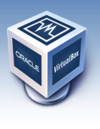Difference between revisions of "VirtualBox"
Prwheatley (talk | contribs) |
|||
| Line 17: | Line 17: | ||
| − | = Platform = | + | === Platform === |
VirtualBox runs on Windows, Linux, Macintosh and Solaris operating systems. For a complete listing of other "guest OSes" that VirtualBox supports, view the online [https://www.virtualbox.org/wiki/Guest_OSes Status] page. | VirtualBox runs on Windows, Linux, Macintosh and Solaris operating systems. For a complete listing of other "guest OSes" that VirtualBox supports, view the online [https://www.virtualbox.org/wiki/Guest_OSes Status] page. | ||
| − | = Documentation and User Support = | + | === Documentation and User Support === |
The VirtualBox Community includes online forums, mailing lists, bug reports, live chats and test builds for trying out new releases. There are also user guides and technical documentation available on VirtualBox.org | The VirtualBox Community includes online forums, mailing lists, bug reports, live chats and test builds for trying out new releases. There are also user guides and technical documentation available on VirtualBox.org | ||
Revision as of 17:08, 30 October 2014
Description
VirtualBox is a powerful x86 and AMD64/Intel64 virtualization product for enterprise as well as home use. Not only is VirtualBox an extremely feature rich, high performance product for enterprise customers, it is also the only professional solution that is freely available as Open Source Software under the terms of the GNU General Public License (GPL).
Created by Oracle, VirtualBox is available as a free download based on the terms of the GLP, version 2. Once VirtualBox is installed, digital preservationists and curators will be able to create and view up to 32 different virtual machines through the "VirtualBox Manager" on a host systems desktop. VirtualBox eumulates hardware for graphics, storage, networking, input devices and audio devices. There is also a snapshot function that can be used to save the state of a machine for future reference. Virtual machines can be imported and exported and "VM groups" can be organized and assigned so that tasks can be completed on multiple machines at the same time. In addition to the base software package, an extension pack can also be installed that includes a virtual USB device and remote desktop protocol support. Source code and binaries can be accessed on VirtualBox.org.
Platform
VirtualBox runs on Windows, Linux, Macintosh and Solaris operating systems. For a complete listing of other "guest OSes" that VirtualBox supports, view the online Status page.
Documentation and User Support
The VirtualBox Community includes online forums, mailing lists, bug reports, live chats and test builds for trying out new releases. There are also user guides and technical documentation available on VirtualBox.org
User Experiences
Development Activity
VirtualBox Version 4.3.16 was released on September 9, 2014.
Changelog for Oracle VM VirtualBox
